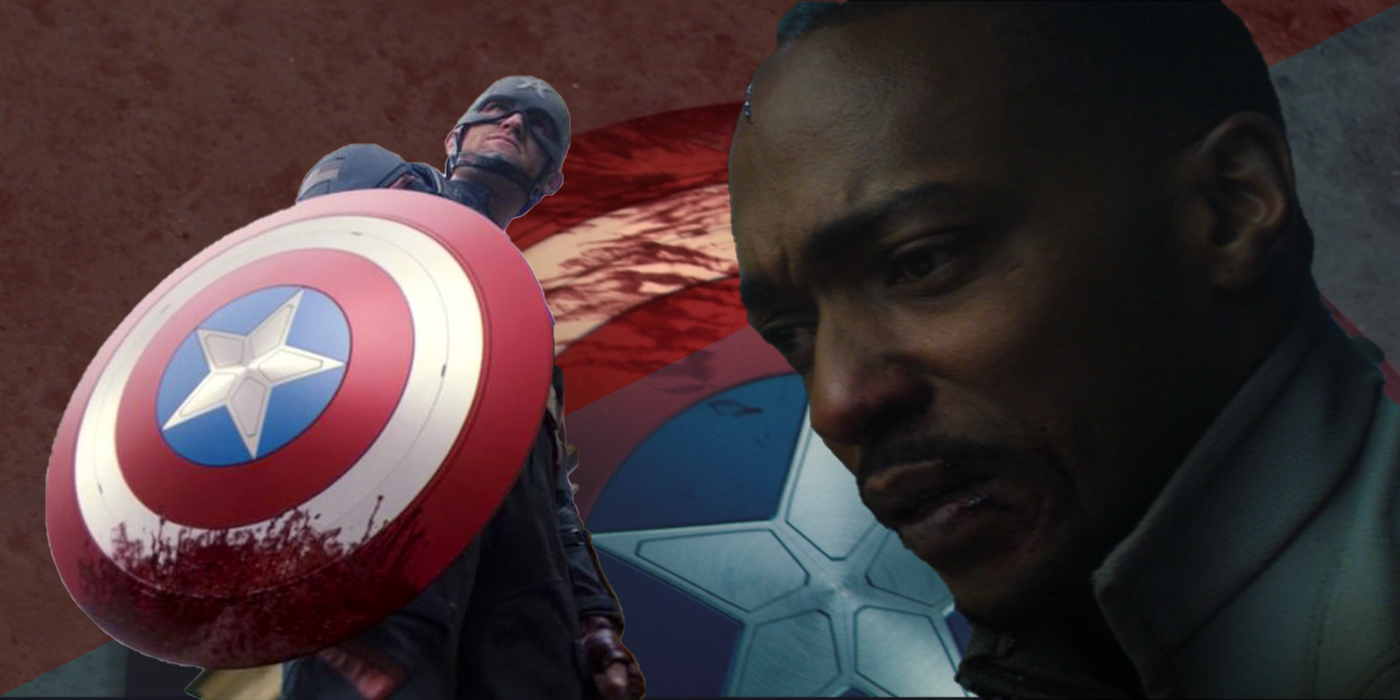
The sight of Captain America's iconic shield covered in blood is, without doubt, The Falcon and the Winter Soldier's most potent and important image. In particular, watching Sam Wilson, a.k.a. Falcon, clean the shield, which had previously served as a powerful symbol for a more naive American idealism, is heartbreaking, complicated, and full of subtle meaning.
The Falcon and the Winter Soldier episode 5 picks up minutes after the events of the previous chapter, following John Walker as he runs away from the scene of his crime, bloody shield in hand, eventually coming to an abandoned warehouse. Clearly untethered and out of control, Walker is soon confronted by Sam and Bucky, who rightfully demand that he give the shield to them. When Walker refuses, things turn violent and a messy brawl ensues, reaching a nightmarish crescendo when Walker holds the shield over Sam's head, ready to strike while chillingly asserting, "I am Captain America." While the blow is ultimately avoided and Sam and Bucky win the day, the audience is left with an intimate scene with Falcon as he uses own hands to wipe away the blood on the now-tarnished shield.
Without question, The Falcon and the Winter Soldier is the MCU's most overtly political project to date, tackling very prevalent real-world issues, including supremacy, systemic oppression, the dangers of the U.S. military-industrial complex, and racism. This short scene with Sam and the bloody shield neatly ties all of those thematic threads together in an incredibly effective way. Here's a breakdown of the scene, what it means for the story, and what it could hint at for the future of the Captain America legacy.
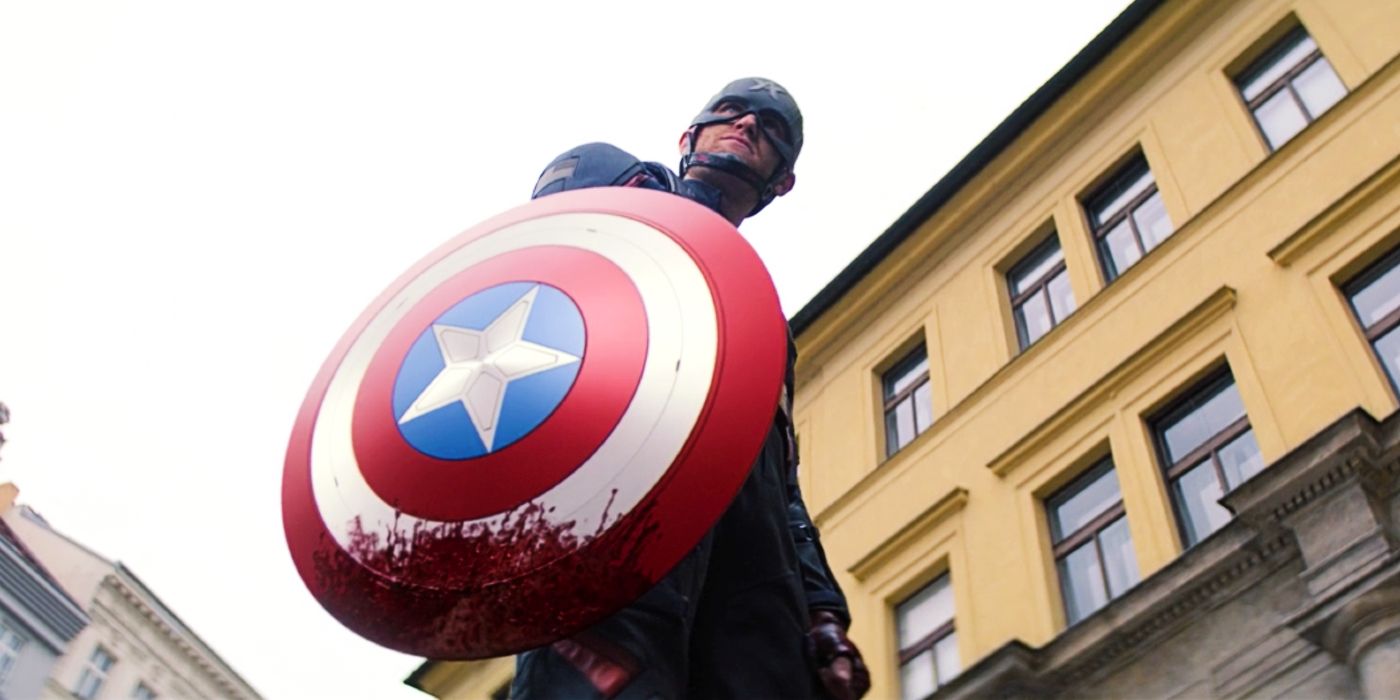
The Falcon and the Winter Soldier episode 5's brutal opening fight scene is visceral and bloody, as Sam, Bucky, and John scrap, not only for the shield, but also for the very fate of Captain America. John Walker's murder of a Flag-Smasher acolyte was shocking, to say the least, a perversion of the shield carried previously by Steve Roger. In-universe, the striking image of the vibranium shield dripping with blood makes for a horrific departure from the more idealistic American imagery so strongly associated with Steve.
However, The Falcon and the Winter Soldier has leaned into the shield acting as a metaphor for the nation as a whole, which is, of course, complicated by moments in its own shadowy and violent history. A far throw from apple pie, fireworks, and other cheerier pieces of popular Americana, the bloody shield is representative of centuries of unequal treatment, slavery, racism and xenophobia, all of which have persisted, in one way or another, while the stars and stripes continued to wave overhead. Considering the United States' history in using its political and military power to frequently act imperialistically, John Walker's self-righteousness, which led to bloodshed abroad, seems to be a not-so-subtle reminder of America's complicated relationship with the rest of the world and that America has blood on its hands, none more than from its own Black citizens it's violently oppressed for centuries.
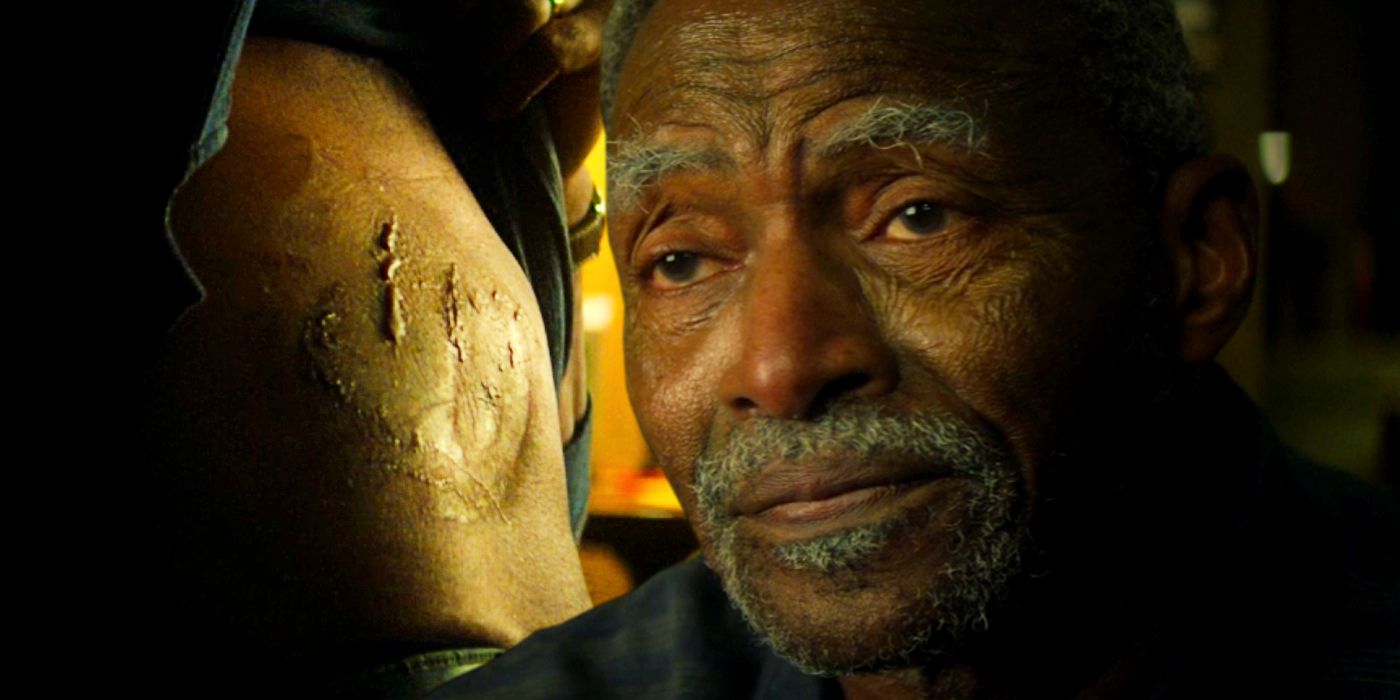
Primarily through the introduction of Isaiah Bradley, The Falcon and the Winter Soldier has interrogated the more violent aspects of America's past - and present - than any other MCU project, arguably even more than Black Panther. Injected with Super Soldier Serum without his knowledge, Isaiah was unjustly jailed and experimented on, only escaping after being falsely declared dead. The entire affair is reminiscent of the infamous real-world Tuskegee Study, in which the U.S. government lied to approximately 600 Black men, promising to offer free health care while in reality observing the progression of untreated syphilis. Considering this and related real-world history, as well as his own experiences, it is unsurprising that Isaiah's wounds and trauma run deep, leading him to bluntly tell Sam that "No self-respecting Black man" would possibly wish to take on the role of Captain America.
Related: Isaiah Bradley's Scars Explained: Super Soldier Backstory Real Life Parallels
Isaiah Bradley's literal scars, shown in episode 5, evoke far too familiar imagery associated with the mistreatment and enslavement of Black men and women throughout America's history. Notably, Isaiah was imprisoned after dismissing orders to rescue fellow soldiers who were being held while being experimented on themselves - a mirror for Steve Rogers in Captain America: The First Avenger, who went rogue to rescue Bucky and his unit from the clutches of Hydra. While Isaiah was severely punished and erased for his "insubordination," Steve was celebrated for heroism, a fact that points to a blatantly racist double standard.
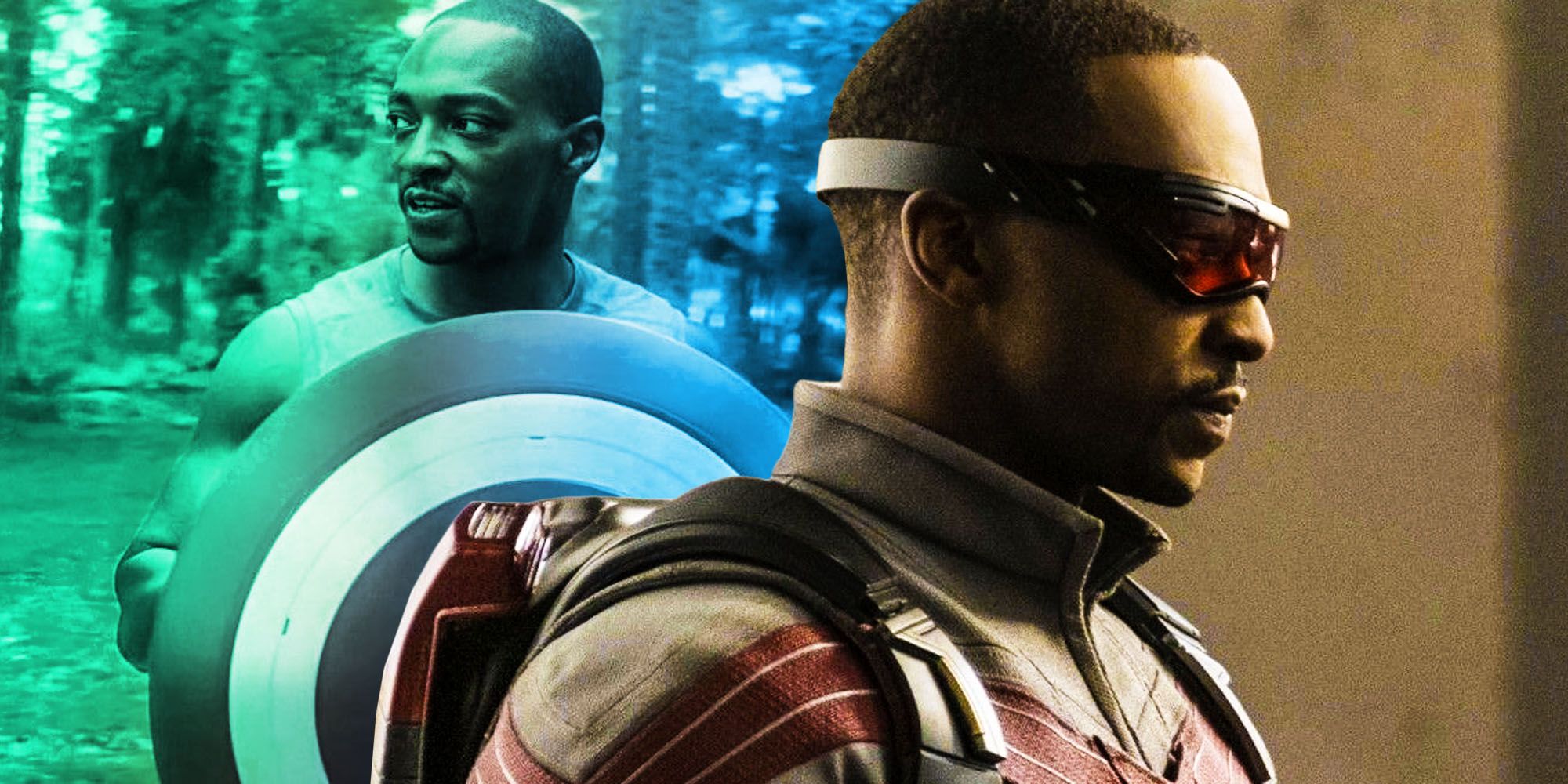
The shot of Sam cleaning the blood off the shield is perhaps the best encapsulation of the nuanced conversation regarding race and American identity at the heart of The Falcon and the Winter Soldier's mission statement. The act of cleaning the shield could be read as Sam's reclamation of it, along with the core values of Captain America, so perverted by John Walker. However, from the perspective of a person like Isaiah Bradley, understandably disillusioned by his own experiences at the hand of the government that shield represents, the cleaning of the shield could also be read as whitewashing the evidence of America's far less charitable history with its Black citizens.
Notably, Sam Wilson's reaction is full of emotion as he picks up the symbol and wipes off the blood which has so greatly diminished it. John Walker's crime is symbolic of America's long and bloody history. Sam being left with the burden in the wake of that violence is representative of how, for centuries, Black men (and women) have been expected by society to clean up a mess they are not responsible for and then nonchalantly move on.
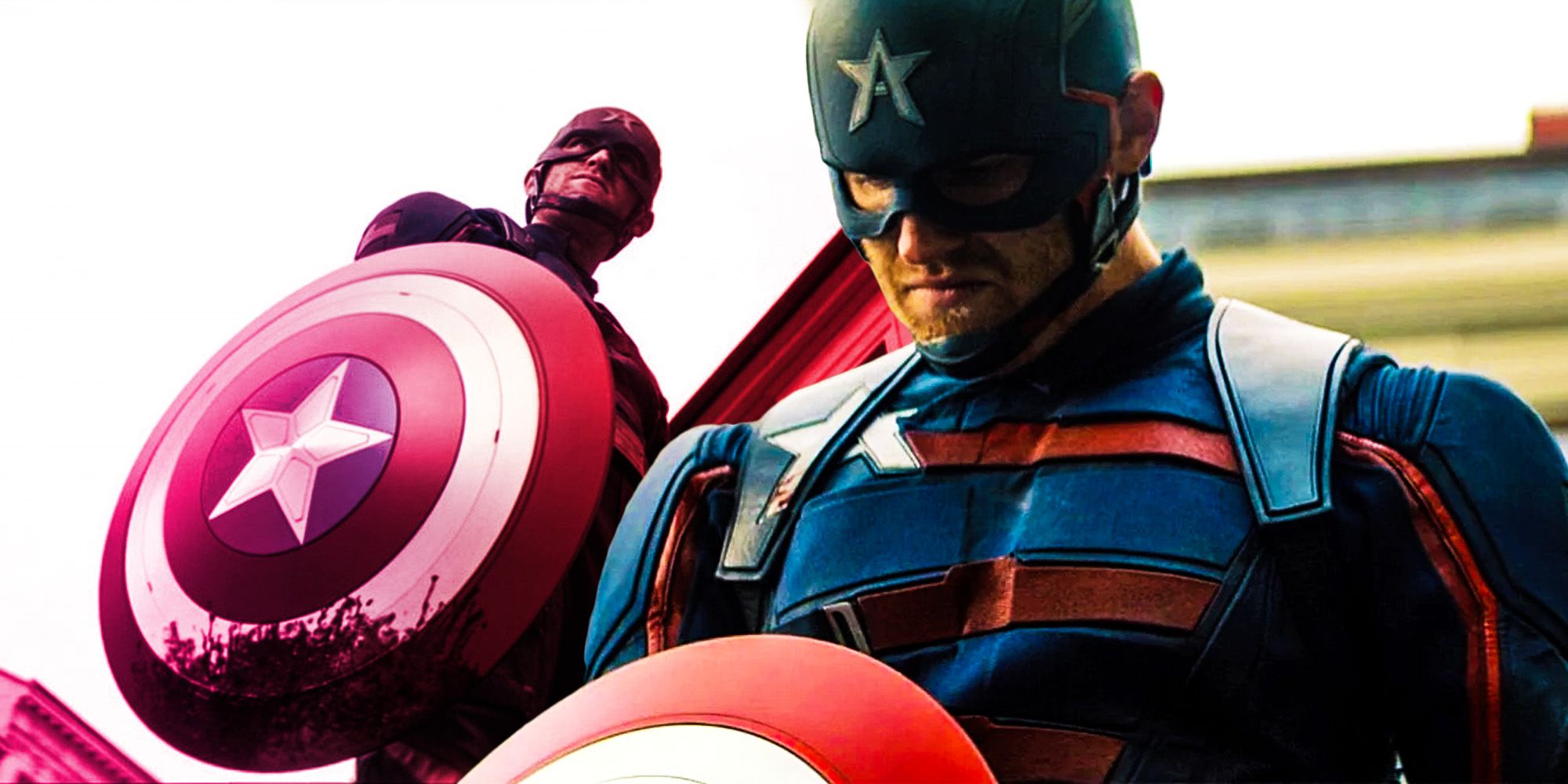
The tension over whether or not Sam should carry the shield has been central to The Falcon and the Winter Soldier so far. The show, which has reckoned with some of the MCU's heaviest thematic material, has tackled some correspondingly tangly situations, none more so than the obvious desecration of the Captain America imagery by John Walker. The question the show seems to be asking is, "If the United States can't get past or pay for the blood it's split, can there be a true Captain America?" Head writer Malcolm Spellman and the creators of the series have waded into some previously uncharted waters, at least waters of this depth, enumerating the dangers of blindly embracing American nationalism without interrogating some darker realities which have long punctuated the nation's history.
With one last episode of The Falcon and the Winter Soldier to air this season, Sam, after an impressive montage of shield-hurling, seems bent on carrying the shield (complications and all) into battle during the finale. Of all the characters in the Marvel Cinematic Universe, Sam Wilson, even without Super Soldier Serum, is the only person remotely capable of upholding the values of what Captain America is supposed to stand for. But given what it now so nakedly represents, is the shield worthy of him?
https://ift.tt/3ttCC0q
April 18, 2021 at 06:15AM




